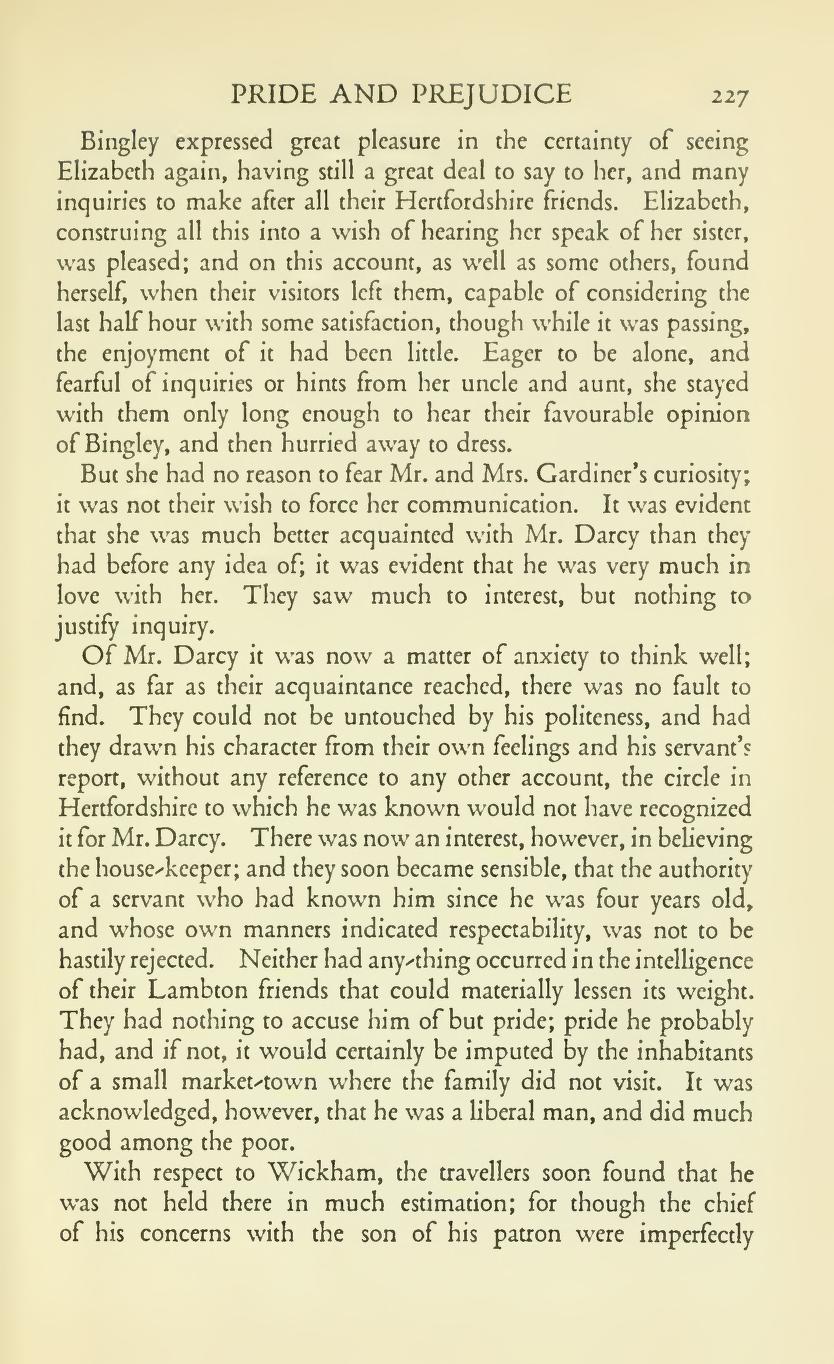 ............prev.....................next
............prev.....................next{{prxprp227.jpg}} || PRIDE AND PREJUDICE 227 ||
Bingley expressed great pleasure in the certainty of seeing
Elizabeth again, having still a great deal to say to her, and many
inquiries to make after all their Hertfordshire friends. Elizabeth,
construing all this into a wish of hearing her speak of her sister,
was pleased; and on this account, as well as some others, found
herself, when their visitors left them, capable of considering the
last half hour with some satisfaction, though while it was passing,
the enjoyment of it had been little. Eager to be alone, and
fearful of inquiries or hints from her uncle and aunt, she stayed
with them only long enough to hear their favourable opinion
of Bingley, and then hurried away to dress.
But she had no reason to fear Mr. and Mrs. Gardiner's curiosity;
it was not their wish to force her communication. It was evident
that she was much better acquainted with Mr. Darcy than they
had before any idea of; it was evident that he was very much in
love with her. They saw much to interest, but nothing to
justify inquiry.
Of Mr. Darcy it was now a matter of anxiety to think well;
and, as far as their acquaintance reached, there was no fault to
find. They could not be untouched by his politeness, and had
they drawn his character from their own feelings and his servant's
report, without any reference to any other account, the circle in
Hertfordshire to which he was known would not have recognized
it for Mr. Darcy. There was now an interest, however, in believing
the houses-keeper; and they soon became sensible, that the authority
of a servant who had known him since he was four years old,
and whose own manners indicated respectability, was not to be
hastily rejected. Neither had anything occurred in the intelligence
of their Lambton friends that could materially lessen its weight.
They had nothing to accuse him of but pride; pride he probably
had, and if not, it would certainly be imputed by the inhabitants
of a small market'town where the family did not visit. It was
acknowledged, however, that he was a liberal man, and did much
good among the poor.
With respect to Wickham, the travellers soon found that he
was not held there in much estimation; for though the chief
of his concerns with the son of his patron were imperfectly
[[227]]